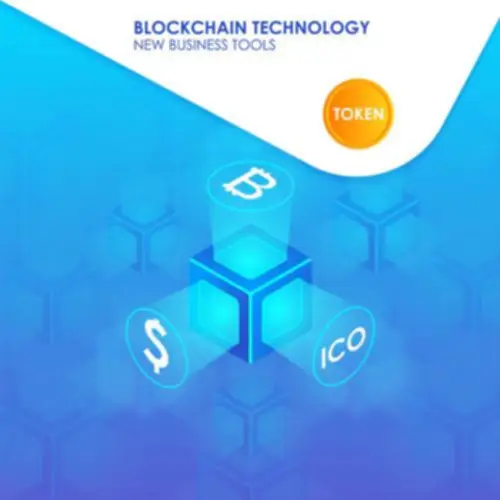NIMS supplies a framework for incident planning and response, in any respect levels, no matter trigger, dimension, or complexity. The broad scope of NIMS consists of Prompt Engineering guaranteeing U.S. roadways are available for incident response and has an enormous impact on emerging as properly as established TIM packages. As traditional traces of incident scene responsibility turn into blurred, it is incumbent on all incident responders to pay attention to and understand one another’s role, regardless of incident dimension or scope.
How Can We Make Positive The Effectiveness Of Our Incident Management Plan?

It guides you from a basic, chaotic state to a well-optimized and efficient incident management system. Based on the findings from your maturity evaluation and readiness evaluation, you can also make improvement recommendations. A readiness analysis helps you determine gaps that could hinder your incident administration efforts. This involves assessing whether or not your organization is ready to deal with incidents successfully. Department of Homeland Security (DHS) to definition of incident management develop and administer the National Incident Management System (NIMS).
Targets And Goals Of Incident Management

Incidents that lead to property harm must be reported to insurers promptly to keep away from delays or potential rejection of claims as a end result of late reporting. Sheryl, the NOC manager for this cloud provider, figures it’s either a core change or hypervisor issue that’s affecting half of their clients’ virtual machines (VMs). Once you’ve considered both prioritization factors, you can get started on your high-priority incidents first.
What Are Xlas? Experience Degree Agreements Explained
Like ITIL incident administration, DevOps incident management goals to fix issues without disrupting operations. For instance, DevOps groups may monitor for poor imply time between failures (MTBF) metrics, which might indicate that there’s an underlying issue that must be investigated. It examines how nicely your organization handles incidents, from identification to closure.
They are primarily liable for the preliminary help and classification of Incidents and the immediate attempt to revive a failed service as quickly as possible. If they’re unable to resolve the Incident, the First Line Service Desk Technician will route the Incident to acceptable help personnel, monitor exercise and maintain customers updated on the status of their Incident. The process helps make positive that a corporation can extract the maximum value from the providers and purposes that it supports by working to ensure efficiency, availability, and user entry to the service. A well-structured course of ensures that disruptions are minimized, and providers are restored swiftly. While these classifications allow you to understand the urgency and influence of various incidents, it’s necessary to remember that prioritizing them effectively is essential to managing them properly. One great tool for this is the ITIL Priority Matrix, which helps you evaluate incidents based on their urgency and influence, allowing you to determine which incidents ought to be addressed first.
- An incident occurs when one thing breaks or stops working, inflicting normal service to be disturbed, whereas an issue is a collection of incidents with an unexplained root trigger.
- Here are the principle parts to include in an information safety policy and different particulars.
- Lessons discovered from the incident are documented, and improvements to incident management processes and systems are implemented.
- Non-compliance can result in legal consequences and financial penalties, making it important for organizations to align their incident administration processes with relevant rules.
After an incident has been reported, workers should register it according to ITIL ideas. Standard solutions can be used in some ITSM purposes to swiftly resolve repeated incidents. If not handled successfully, these sorts of situations could cause major disruptions in your company’s key operations. It assists you in resolving issues so that you just and your group’s other callers obtain the help they require as quickly as possible. Communication could be distributed at instances, particularly in a virtual work environment.

It’s a mixture of people’s efforts to utilize processes and instruments to handle incidents. The objective of this sub-process is to document and prioritize incident stories with the appropriate diligence to facilitate a swift and efficient resolution. IT organizations need to be proficient at determining the scope and severity of a reported incident and prioritizing it accordingly.
In the context of Incident Management, ITIL provides a structured process to ensure environment friendly and consistent dealing with of incidents. Enterprise Incident Management (EIM) refers to a large-scale method to handling incidents in organizations with advanced IT environments. It includes managing multiple incidents throughout numerous providers and systems concurrently. To break it down simply, Incident Management is a set of practices and processes designed to determine, analyze, and correct incidents that would lead to service downtime or disruption. Therefore, it’s crucial that you just apply a rigorous method throughout all process activities, guaranteeing that service worth and buyer perception just isn’t eroded by mishandling or poor coordination.
?? Note that if the underlying causes of an incident are unknown, but appear to share the same origin, it is strongly recommended to provoke an issue management process. While practice makes excellent, there are additional methods you can broaden your knowledge base. Some of these include continuing your training and tracking efficiency metrics. Attending webinars, listening to podcasts, and studying newsletters can all encourage you to deliver new concepts again to your staff. Plus, project monitoring and analyzing KPIs might help you and your group study from your errors. Watch a live demo and Q&A session to help you streamline goal-setting, accelerate annual planning, and automate how groups consumption strategic work.
Firefighters are geared up with full Personal Protective Equipment (PPE), including turnout gear, SCBA, helmets, and rescue instruments. The Incident Commander (IC), usually a senior officer, has ultimate authority and accountability for the incident’s administration and outcomes. Firefighters carry out planned and aggressive firefighting operations, outfitted with full Personal Protective Equipment (PPE), including turnout gear, SCBA, and rescue instruments. To manage the incident by assigning tactical assets, overseeing operations, and delegating authority as required. In recognition of these modifications, the updated 2010 TIM Handbook is designed for TIM stakeholders throughout the expertise continuum. Professionals new to TIM will discover the necessary components for beginning and maintaining a profitable TIM program.
Now that you have got an understanding of what an incident administration plan is and why it’s important, let’s dive right into formulating one on your group. By following a structured method, your group can ensure incidents are dealt with effectively and achieve priceless insights to forestall future occurrences. In today’s financial system, all TIM stakeholders must maximize assets and decrease cost results. The 2010 TIM Handbook paperwork how TIM program success could be achieved, and provides valuable info on capitalizing on obtainable sources to reduce the budgetary impacts of TIM program components. In addition, suggestions for resource administration and resource sharing may be discovered throughout the Handbook.
To grasp the incident management maturity mannequin, think of it as a roadmap guiding organizations from chaos to mastery in dealing with incidents. This model is deeply rooted within the capability maturity mannequin (CMM), a framework initially developed by Carnegie Mellon to improve software processes. The CMM outlines a transparent maturity curve, describing an organization’s journey from disorganized, reactive approaches to optimized, proactive strategies. Incident management includes a systematic strategy to handling incidents, from detection and reporting to evaluation, containment, eradication and restoration, and post-incident analysis.
Having a transparent minimize crisis communication technique is essential in minimizing the influence of a adverse incident. The more relevant inside and external stakeholders are supplied factual information about the disaster, the less doubts and uncertainties there might be amongst them. This goes a long way in restoring the trust your organization has fostered with its stakeholders. Learn about ITOps, the process of implementing, managing, delivering and supporting IT providers to fulfill the business wants of inner and exterior users. An incident is a single, unplanned occasion that causes a disruption in service, while an issue is the root reason for a disruption in service, which is often a single incident or a series of cascading incidents. Prioritization entails assessing the urgency and impact of an incident to resolve how shortly it must be addressed.
They can mean that help technicians have not identified the foundation cause of a difficulty, and subsequently it retains occurring. Perhaps the IT employees knows how to resolve the difficulty and the users could actually do it themselves, but there are not any resources available to facilitate self-service. Repeated incidents may be prevented by finding the basis reason for a difficulty and pro-actively speaking with customers to help them resolve the issue without reporting it to IT.
Transform Your Business With AI Software Development Solutions https://www.globalcloudteam.com/ — be successful, be the first!
